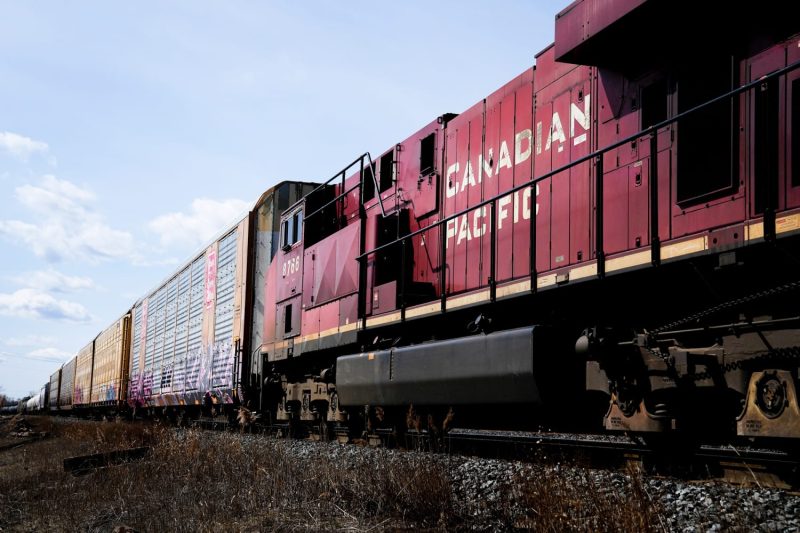The recent talks of a possible work stoppage at Canada’s two largest railroads have raised concerns about potential disruptions to the U.S. supply chain. With both Canadian National Railway (CN) and Canadian Pacific Railway (CP) facing labor disputes, the impact could extend beyond the borders and affect various industries that rely on efficient rail transportation.
The situation is particularly worrisome for U.S. businesses that depend on the timely delivery of goods and raw materials from Canada. The interconnected nature of the North American supply chain means that any disturbances in Canada’s rail operations could cause ripple effects across industries on both sides of the border.
One key aspect of the potential work stoppage is the impact on the automotive sector. With many U.S. automakers sourcing parts and vehicles from Canada, any disruption in rail service could lead to production delays and shortages. This could have a direct impact on consumers, as it might lead to higher prices and limited availability of vehicles in the market.
Additionally, the agricultural industry is likely to be affected by a potential rail strike in Canada. U.S. farmers depend on rail transportation to move their crops to market, and any delays in shipments could result in financial losses and hamper their ability to meet consumer demand. This, in turn, could lead to higher prices for agricultural products and impact the food supply chain.
The retail sector is another area that could feel the consequences of a work stoppage at CN and CP. Many retailers rely on efficient rail transportation to receive goods from Canada, including electronics, clothing, and other consumer products. A disruption in rail service could lead to inventory shortages, delayed deliveries, and higher costs for retailers, ultimately affecting consumers who may face limited choices and higher prices.
In the midst of these potential challenges, businesses on both sides of the border are closely monitoring the situation and exploring contingency plans to mitigate the impact of a work stoppage at Canada’s major railroads. Alternative transportation options, such as trucking and shipping, may need to be considered to maintain the flow of goods and prevent significant disruptions to the supply chain.
While negotiations between the railroads and labor unions continue, the uncertainty surrounding the outcome of the talks underscores the importance of strategic planning and collaboration among stakeholders to ensure the resilience of the supply chain. The interconnectedness of the North American economy calls for proactive measures that can safeguard against unforeseen disruptions and help maintain the efficient movement of goods and services between Canada and the U.S.
